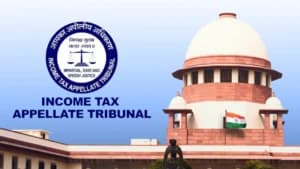The Supreme Court of India has clarified that the execution of a decree granting a perpetual injunction is not restricted by any time limit. This ruling is based on Article 136 of the Limitation Act, 1963, which states that such decrees remain enforceable indefinitely.
The ruling came in the case of Bhudev Mallick Alias Bhudeb Mallick Vs Ranajit Ghoshal (Civil Appeal No. 2248 of 2025), where the court examined whether an injunction decree could still be enforced 40 years after its issuance.
The Supreme Court rejected the argument that a decree for permanent injunction loses its enforceability over time. It emphasized that such decrees continue to hold legal force as long as the decree-holder’s possession is threatened.
The bench, comprising Justice JB Pardiwala and Justice R Mahadevan, clarified that each breach of an injunction is actionable, and the doctrine of res judicata does not apply. The court also stressed that judgment-debtors who repeatedly violate an injunction can face legal consequences, including imprisonment and property attachment.
Read Also:- UP Gangsters Act: Supreme Court Stresses Need for Strict Scrutiny in FIRs Under Stringent Laws
Case Background
The dispute began in 1965 when the predecessors of the decree-holders filed a suit for confirmation of possession and permanent injunction over a piece of land. The Subordinate Judge, 2nd Court, Hooghly, ruled in favor of the plaintiffs and issued a permanent injunction restraining the defendants from disturbing their possession.
After multiple appeals, the decree attained finality in 1980. However, in 2017, the decree-holders filed for execution, alleging that the judgment-debtors were interfering with their property. The Executing Court allowed the execution and ordered the arrest of the judgment-debtors and the attachment of their property.
The judgment-debtors challenged the decision before the Calcutta High Court, which upheld the execution order. Finally, the case reached the Supreme Court, where the execution order was reaffirmed, establishing that perpetual injunction decrees remain enforceable indefinitely.
Read Also:- NDPS Act: Supreme Court's Landmark Decision - Bail Possible Despite Long Incarceration
The Supreme Court cited past judgments reinforcing the same principle. In Jai Dayal v. Krishan Lal Garg (1996), the court ruled that a decree of perpetual injunction must be obeyed at all times. Similarly, in Maga Ram v. Kana Ram (1993), it was held that a decree for prohibitory injunction remains enforceable whenever violated, regardless of time elapsed.
A permanent injunction decree remains valid and enforceable indefinitely. Each breach creates a fresh cause of action, allowing decree-holders to seek legal remedies at any time. Courts can enforce these decrees through imprisonment or property attachment when necessary.
Case Name: Bhudev Mallick Alias Bhudeb Mallick Vs Ranajit Ghoshal., CIVIL APPEAL NO.2248 OF 2025















